4 papers of IPEG researchers presented at the 3rd International Conference on Smart Grid and Renewable Energy (SGRE 2022)!
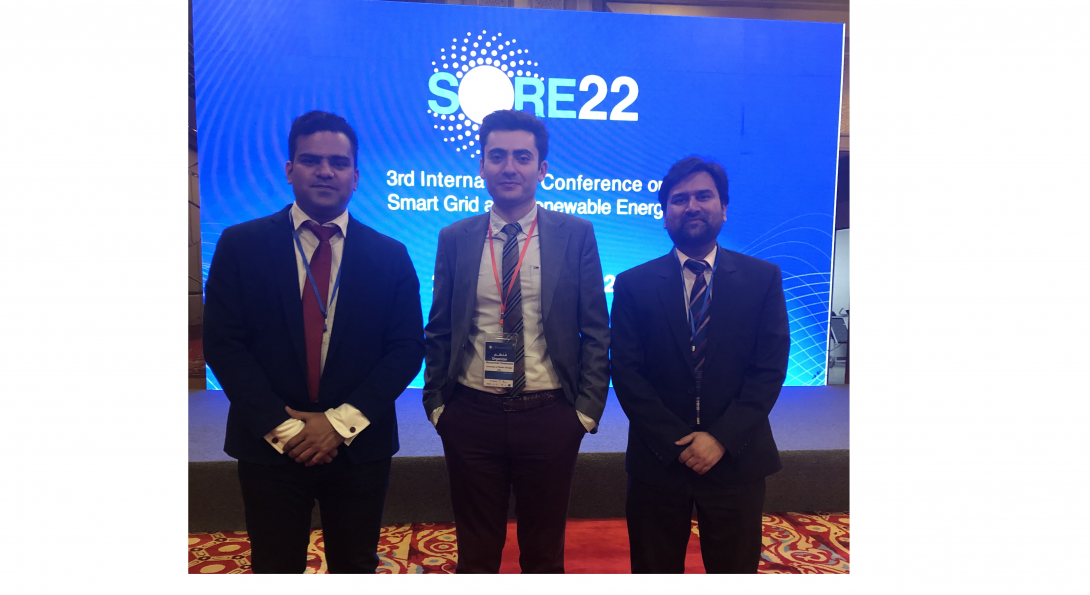
Introduction
Prof. Shadmand and two IPEG researchers, Silvanus D’silva and Muhammad F. Umar attended the 3rd International Conference on Smart Grid and Renewable Energy (SGRE 2022) in person.
Silvanus and Farooq presented 4 papers at SGRE 2022 as the most recent research outcomes of the IPEG lab!
Paper 1: Coordinated Power Reserve Control of PV Sources For Frequency Restoration in Power Electronics Dominated Grid
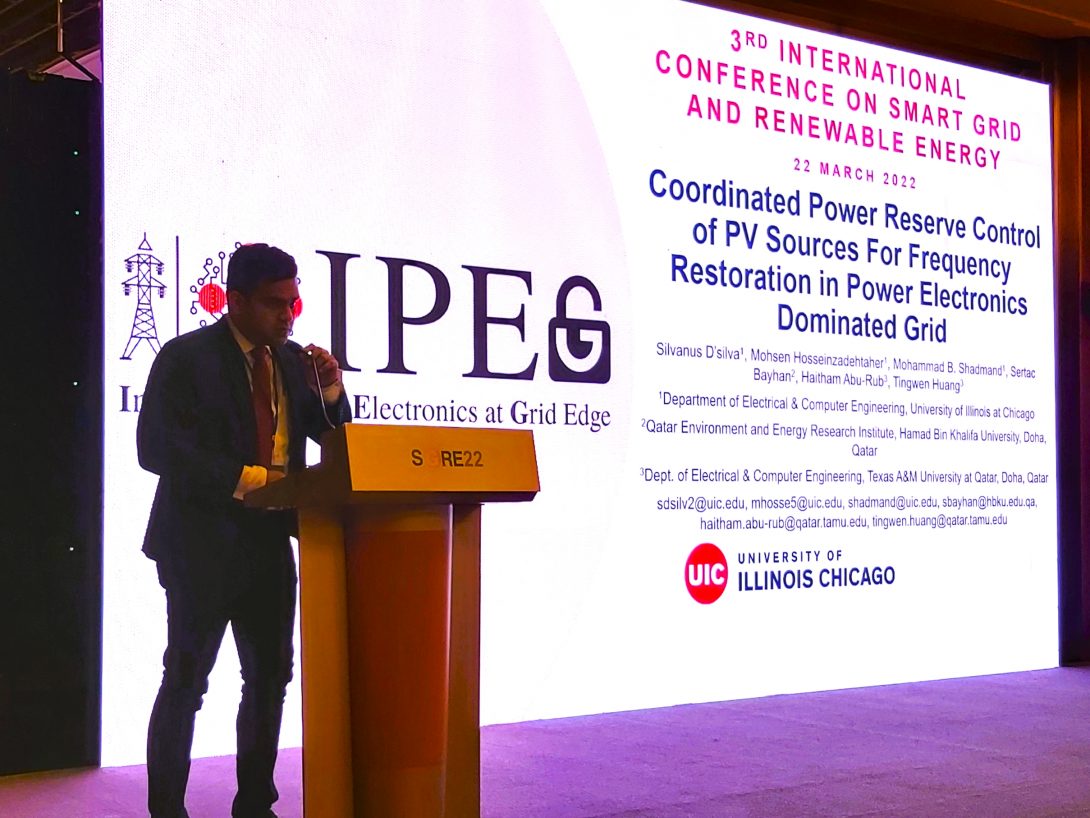
Abstract – This paper presents a droop-power allocation optimizer (D-PAO) inspired control scheme to mitigate frequency excursions in a power electronics dominated grid. This scheme leverages the photovoltaic (PV) sources’ flexible power reserve ability to restore frequency during sudden imbalances in power demand-supply, while minimizing the size of the required energy storage systems. Application of PV power reserve in a distributed PEDG network comprising of sources with various capacities, reserves and other constraints has not been investigated so far. The proposed scheme accommodates these uncertainties in the estimation of the required active power (ΔP). Moreover, the PAO module optimally allocates the estimated ΔP demand among all the sources in the cluster, based on the available power reserves while also minimizing losses. In response, the power electronics converters/inverters in the PEDG adjust their power levels and support the network in restoring the frequency in a timely and cost-effective manner. The PAO module eliminates the droop-based coordination requirement and their associated drawbacks. Case studies illustrate the superiority of the proposed scheme over the conventional droop-based frequency restoration approaches.
List of authors: Silvanus D’silva, Mohsen Hosseinzadehtaher, Mohammad B. Shadmand, Sertac Bayhan, Haitham Abu-Rub, Tingwen Huang
Presenter: Silvanus D’silva
Paper 2: Differential Power Processing-based Constant Power Generation towards Grid-friendly Photovoltaic System
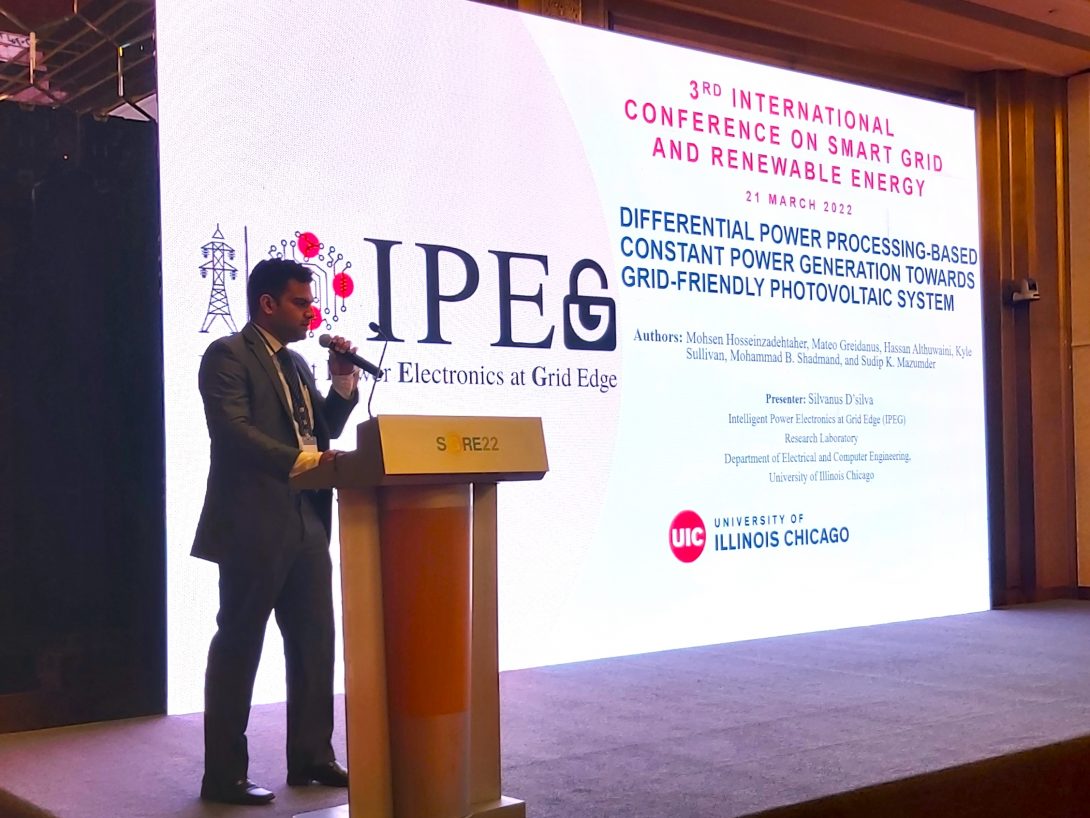
Abstract – This paper proposes an efficient constant power generation (CPG) control scheme for photovoltaic systems (PV) by utilizing differential power processing (DPP) converters. The conventional CPG approaches will become nearly ineffective for PV modules under partial shading conditions; thus, resulting in propagation of disturbances in high PV penetrated grids. The goal of this paper is to realize a more effective dispatchable PV power generation under partial shading conditions to mitigate wide range of disturbances at the grid-edge. The proposed approach is to leverage DPP converters to improve power harvesting when the PV systems encounter partial shading while ensuring CPG for wide range of PV modules’ condition. Several case studies are presented to demonstrate the functionality of the proposed approach for achieving CPG. The provided comparison between the proposed and state-of-the-art CPG approaches demonstrates promising superiority for realizing grid-friendly PV systems.
List of authors: Mohsen Hosseinzadehtaher, Mateo Greidanus, Hassan Althuwaini, Kyle Sullivan, Mohammad B. Shadmand, and Sudip K. Mazumder
Presenter: Silvanus D’silva
Paper 3: Smart Battery Cells for Maximum Utilization in Power Electronics Dominated Grids
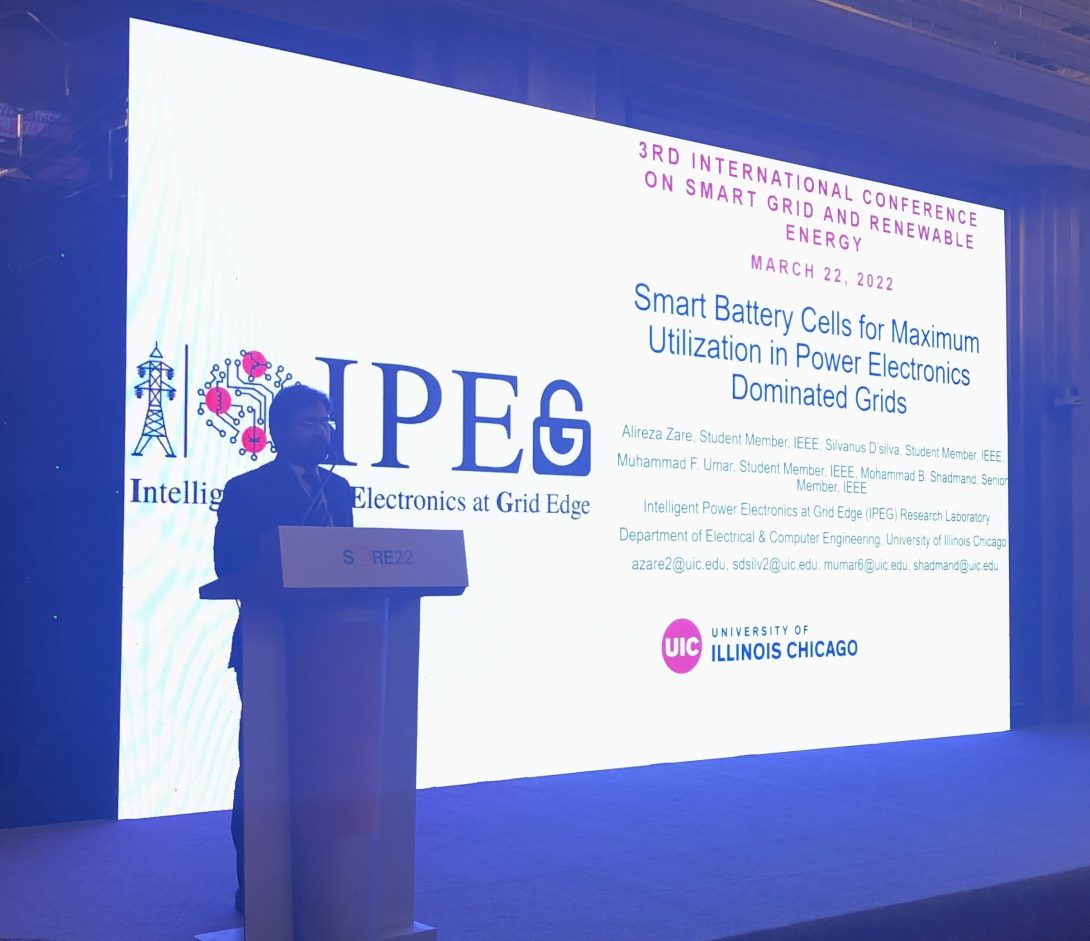
Abstract – This paper proposes a control scheme for maximum utilization of smart battery cells based on differential power processing (DPP) for application in power electronics dominated grids (PEDG). It is essential to supply uninterrupted power to critical and non-critical loads by using battery energy storage systems (BESS) in next generation power grid i.e., PEDG. The capability of BESS to provide uninterrupted power is highly dependent on the state of Charge (SOC) of individual battery cells in a battery string. Conventionally, the end of life (EOL) metric of BESS is limited by the battery with lowest SOC. Ultimately, this limitation constraints the total power injection capability of the BESS. In contrast, the proposed scheme estimates the differential power required to support the battery cells with lowest SOCs and thereby ensures a balanced discharge of the BESS. The required differential power is supplied by an auxiliary battery cell interfaced to the BESS via dual active bridge converter (DAB). Thus, the energy availability of the BESS is significantly enhanced while also minimizing the discharge stresses on the weaker battery cells while increasing the battery cell’s lifetime. The performance improvement obtained from the proposed smart battery cells is verified via several case studies. Furthermore, the superiority of the proposed approach is justified by comparing with conventional BESS control approach.
List of authors: Alireza Zare, Silvanus D’silva, Muhammad F. Umar, Mohammad B. Shadmand.
Presenter: Muhammad F. Umar
Paper 4: Artificial Intelligence based Anomaly Detection and Classification for Grid-Interactive Cascaded Multilevel Inverters
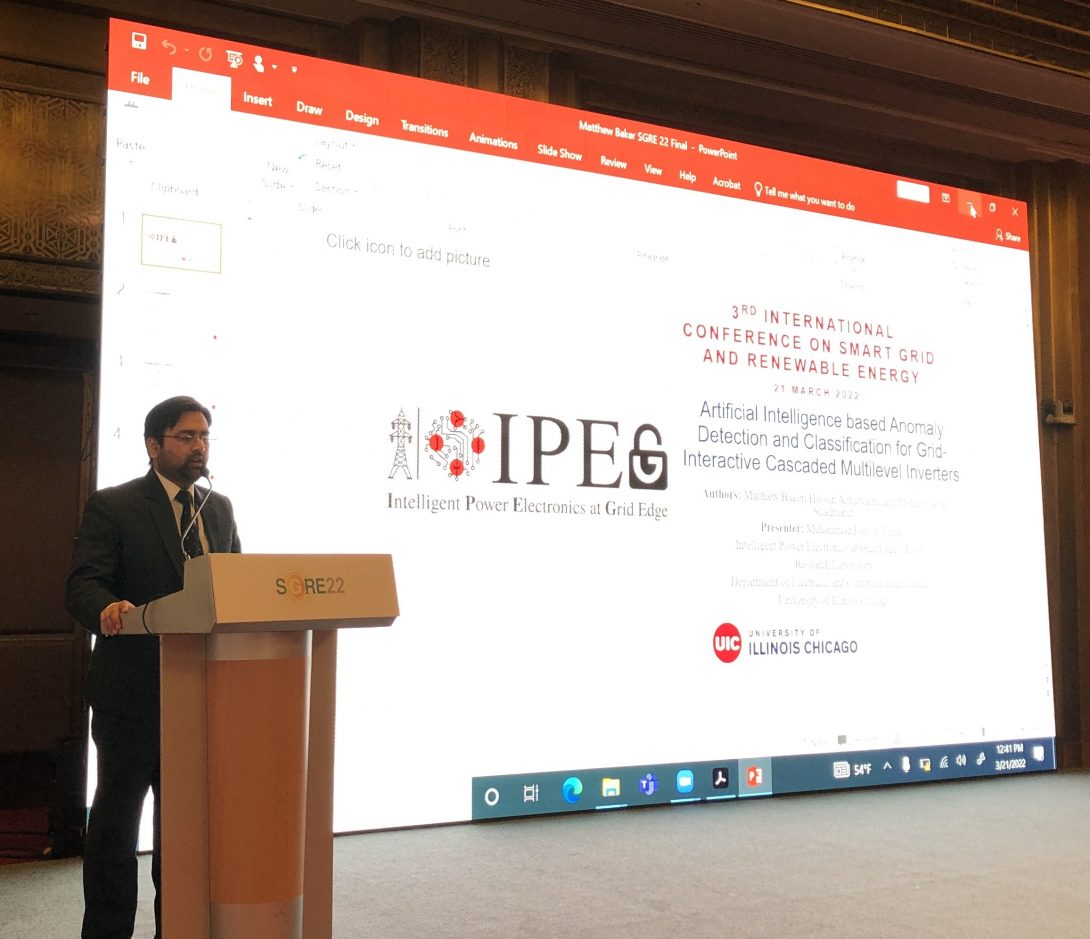
Abstract – The cascaded multi-level inverter (CMI) is becoming increasingly popular for wide range of applications in power electronics dominated grid (PEDG). The increased number of semiconductors devices in these class of power converters leads to an increased need for fault detection, isolation, and self-healing. In addition, the PEDG’s cyber and physical layers are exposed to malicious attacks. These malicious actions, if not detected and classified in a timely manner, can cause catastrophic events in power grid. The inverters’ internal failures make the anomaly detection and classification in PEDG a challenging task. The main objective of this paper is to address this challenge by implementing a recurrent neural network (RNN), specifically utilizing long short-term memory (LSTM) for detection and classification of internal failures in CMI and distinguish them from malicious activities in PEDG. The proposed anomaly classification framework is a module in the primary control layer of inverters which can provide information for intrusion detection systems in a secondary control layer of PEDG for further analysis.
List of authors: Matthew Baker, Hassan Althuwaini, and Mohammad B. Shadmand.
Presenter: Muhammad F. Umar